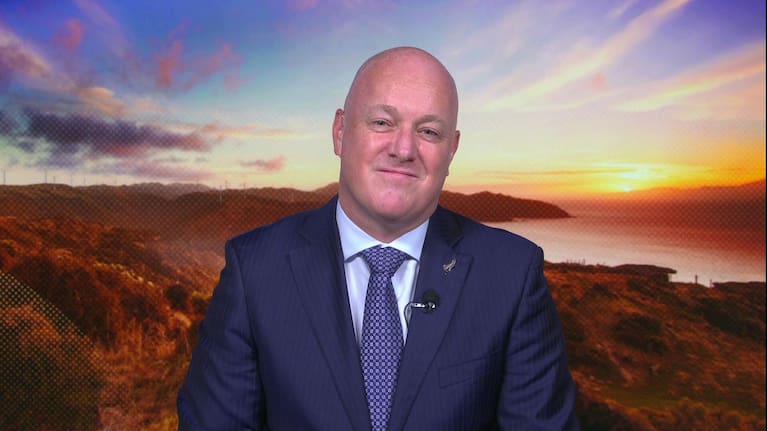It seems there's been no honeymoon period for the new coalition Government, with Kiwis giving its performance to date a 4.6 out of 10, similar to the Labour Government just before the election - according to a new poll.
The result was published by the IPSOS New Zealand Issues Monitor, which tracks what New Zealanders are concerned about and which political parties are seen to be able to improve those matters.
But Prime Minister Christopher Luxon said there's more work to do and the Government is "fixated" on the same issues as New Zealanders.
The study was conducted from February 20 to 29, polling 1001 New Zealanders aged 18 and up.
Inflation and the cost of living continues to be the most important issues to New Zealanders, but was trending gradually downwards, having been the top issue since February 2022.
However, concerns about crime and law and order dropped "significantly" according to the study, to its lowest level since May 2022. It is now the fourth most important issue for New Zealanders.
The Prime Minister says he's not worried about polls, only outcomes.
Four main areas saw a rise of concern among those studied - transport and public transport, unemployment, defence / foreign affairs / terrorism, and issues facing Māori. The latter was of particular concern for respondents who were Māori themselves.
The overall mean rating of the coalition Government's performance was 4.6 out of 10. Just before last year's general election, the Labour Government's rating was 4.7.
There was a significant increase in the proportion of respondents giving ratings between zero and three.
The top five issues were:
1. Inflation / cost of living
2 = Housing / price of housing
2 = Healthcare / hospitals
4. Crime / law and order
5. The economy

Respondents continued to believe the best party to address those issues was the National Party.
"New Zealanders’ confidence in National’s ability to tackle inflation / cost of living, healthcare / hospitals, crime / law & order and the economy is also rising."
Asked about the results of the study on TVNZ's Breakfast today, Luxon highlighted that for 15 of the 20 areas of concern raised by New Zealanders in the study, respondents backed the National Party's ability to deal with them, something he said was "good".
"The issues are the same ones that [we] have been talking about now for a year and a half, which is fix the economy to lower inflation and the cost of living, restore law and order, deliver better public services around health and education - those are the big five that people seem to be fixated on and focused on, quite rightly. That's what our Government's focused on as well.
"Yes there's lots more work to do. We're working really hard at it."
He said the Government's 100-day plan showed action on that, and it was now "rolling forward into new activity for quarter two".
"We're going to get things done and be a Government of action for people."
He said he was "not too hung up on polls" and was more focused on outcomes.
Labour continued to be perceived as the party best placed to manage poverty / inequality and race relations / racism.
The Green Party was considered to be most capable of managing climate change and pollution, while Te Pāti Māori was viewed as the most capable of managing issues facing Māori.
New Zealanders' concern about petrol prices and fuel decreased over the last six months, while concern about transport and public transport increased.
Those on the right of the political spectrum tended to consider crime, the economy and health were more important issues, while those on the left tended to favour housing as a key issue. There was also a significant difference between the left and right in how important they considered climate change, poverty, and issues facing Māori.
Most age groups thought inflation and the cost of living was the most important issue, except those over 65 who favoured healthcare first and inflation and the cost of living second.
Those between 18 and 49 were more concerned about housing and its cost than those in older generations.





















SHARE ME